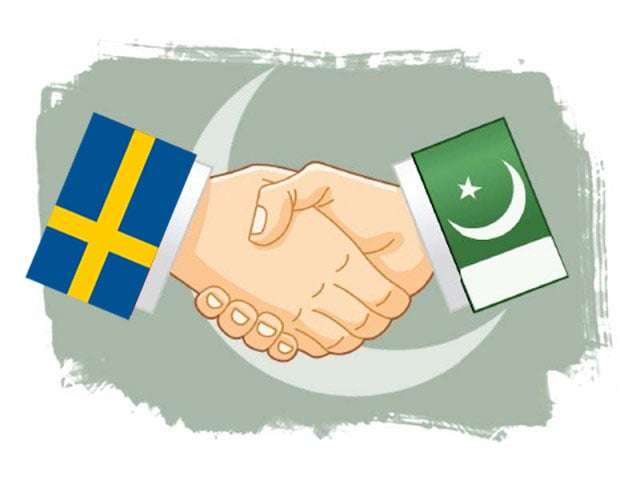
|
Getting your Trinity Audio player ready...
|
Swedish Companies in Pakistan Face High Taxes and Energy Costs, Hindering Foreign Investment Despite Growth Potential
KARACHI: Over 40 Swedish companies operating in Pakistan are encountering significant challenges that hinder foreign investment despite the country’s growth potential. These issues include high tax rates, steep energy costs, and restrictions on transferring foreign currencies, according to the Ambassador of Sweden, Alexandra Berg von Linde.
Challenges Faced by Swedish Companies
High Tax Rates
The high tax rates in Pakistan are a major concern for Swedish companies. These rates increase operational costs and reduce profit margins, making it less attractive for foreign companies to invest in Pakistan.
Steep Energy Costs
Energy costs in Pakistan are among the highest in the region. This not only affects the manufacturing sector but also impacts the overall cost of doing business, making it difficult for companies to remain competitive.
Restrictions on Transferring Foreign Currencies
Restrictions on transferring foreign currencies present a significant barrier to investment. These restrictions make it challenging for companies to repatriate profits, thereby discouraging further investment.
Impact on Foreign Investment
Speaking at a meeting with the Karachi Chamber of Commerce and Industry (KCCI), Ambassador von Linde highlighted that these Swedish companies, many of which are globally recognized brands, have been present in Pakistan for decades. “These companies have supported Pakistan’s growth and are well-acquainted with the complexities of the local business climate,” she stated.
Despite recognizing Pakistan’s investment potential, addressing these challenges is critical for creating a more conducive environment for foreign investors. Without resolving these issues, the growth of foreign investments in Pakistan will remain stunted.
Opportunities for Collaboration
Sustainability
Sweden is keen on deepening collaboration with Pakistan in areas such as sustainability. Sustainable practices are essential for long-term economic growth and environmental preservation.
Digitalization
Digitalization presents significant opportunities for both countries. By embracing digital technologies, Pakistan can enhance its competitiveness and attract more foreign investment.
Green Transitions
The ambassador emphasized the importance of green transitions for staying competitive in the EU market. “For Pakistan to stay competitive and relevant in the EU market, a green transition is essential,” she said.
Role of the Swedish Business Council
Sweden’s role in fostering trade relations through the Swedish Business Council in Pakistan has been pivotal. The council actively promotes trade between the two countries by expanding and strengthening business links. “The council is an entry point for Swedish companies that are interested in the Pakistani market,” explained the ambassador.
Generalised Scheme of Preferences Plus (GSP Plus)
Commenting on the Generalised Scheme of Preferences Plus (GSP Plus), the Swedish ambassador addressed Senior Vice President KCCI Ziaul Arfeen’s remarks on the subject. “GSP Plus is an open and generous system that promotes economic growth and sustainable development,” she said. However, she also noted that there are conditions attached to the GSP system in terms of implementing international conventions related to human rights, labor rights, environmental regulations, and governance principles.
Celebrating 75 Years of Diplomatic Relations
This year marks the 75th anniversary of diplomatic relations between Sweden and Pakistan, underscoring their long-standing partnership. Reflecting on this relationship, Ambassador von Linde remarked, “During these 75 years, the relationships have evolved based on mutual respect and a shared commitment to economic growth and sustainable development.”
Strategic Recommendations for Improvement
Enhancing Regulatory Framework
Improving the regulatory framework in Pakistan is crucial for attracting more foreign investment. Simplifying tax laws, reducing energy costs, and easing currency transfer restrictions can create a more business-friendly environment.
Strengthening Economic Ties
Strengthening economic ties between Sweden and Pakistan through bilateral trade agreements and collaborative projects can open up new avenues for investment and growth.
Fostering Innovation and Technology
Encouraging innovation and technology transfer between the two countries can boost productivity and competitiveness in various sectors, including manufacturing and services.
Promoting Sustainable Practices
Promoting sustainable practices and green technologies can help Pakistan meet international standards and gain a competitive edge in global markets.
Facilitating Market Access
Facilitating easier market access for Swedish companies by addressing non-tariff barriers and regulatory challenges can enhance trade relations and economic cooperation.
FAQs
Q1: What are the main challenges faced by Swedish companies in Pakistan? A1: The main challenges include high tax rates, steep energy costs, and restrictions on transferring foreign currencies.
Q2: What opportunities exist for collaboration between Sweden and Pakistan? A3: Opportunities for collaboration include sustainability, digitalization, and green transitions, which can benefit both countries.
Q3: How can Pakistan attract more foreign investment? A5: Pakistan can attract more foreign investment by simplifying tax laws, reducing energy costs, easing currency transfer restrictions, and promoting a business-friendly environment.
MUST READ:
https://skipper.pk/2024/11/22/challenges-abound-for-fan-manufacturers/






